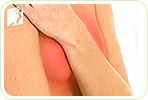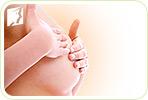
It is not uncommon for women to experience symptoms of breast tenderness during menopause. Symptoms of breast tenderness can be uncomfortable if not treated or diagnosed correctly or early. The following article provides some practical information on handling the symptoms of breast tenderness and some of its causes.
What Exactly Is Breast Tenderness?
Tests for breast tenderness:
- Breast biopsy
- Culture of the nipple discharge to check for infection
- Cytological evaluation of nipple discharge
- Magnetic resonance imaging (MRI)
- Mammography
Breast tenderness can be defined as any pain, soreness, or discomfort in the breasts. The symptoms are often accompanied by swelling. Mild breast tenderness is often experienced during menstrual periods, pregnancy, and breast-feeding. Sometimes this can be felt more severely, though the tenderness tends to disappear after the period ends. Women will also suffer severe breast tenderness when approaching menopause, and in many cases this will continue during and after menopause.
What Causes Breast Tenderness during Menopause?
- Discharge from your nipples (particularly blood or pus)
- Signs of a breast infection, including redness, pus, or fever.
- Noticed a new lump associated with the pain that does not go away after your menstrual period.
- Persistent and unexplained breast pain.
Breast tenderness can be caused by a wide variety of factors, and pinpointing the one exact cause of breast tenderness can be difficult. However, in the majority of cases, unbalanced levels of estrogen is the principal cause during menopause.
Hormonal imbalance during the menstrual cycle affects the amount of estrogen and progesterone in the body. Typically, when the body's estrogen levels are down and progesterone levels are up, the breasts increase in size. Sometimes, hormonal imbalance will affect systems more severely, further increasing the size of the breasts and making them more susceptible.
In order to avoid problems of breast tenderness during menopause, it is critical to maintain healthy hormonal levels.
How to Deal with Breast Tenderness?

Because hormonal imbalance is the most likely cause for breast tenderness during menopause, initial treatment should aim to return hormone levels to normal. This can be achieved in a number of ways. The most simple however, is just following a healthy diet and exercise regime, and, if necessary, supplementing it with alternative medicines.
Sources
- Hutchinson, Susan M.D. "The Stages of a Woman's Life: Menstruation, Pregnancy, Nursing, Perimenopause, Menopause". November 2007.
- Love, Susan M.D. Menopause and Hormone Book. New York: Three Rivers Press, 2003.
- BMJ Group. "Menopause: What is it?" Patient Leaflet. 2007.



